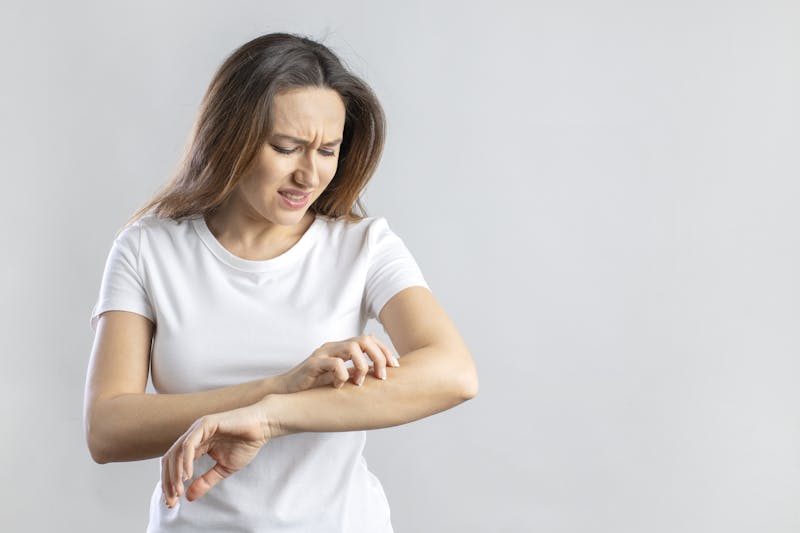
At some point, you or someone you know has probably experienced eczema. Although most people associate the common condition with skin dryness and itchiness, eczema can cause other unpleasant symptoms as well. One of the lesser-known symptoms that can accompany eczema is swelling.
What is Eczema?
Eczema, also known as atopic dermatitis, is a chronic skin condition that affects millions of people worldwide. It is a type of inflammation that causes the skin to become red, itchy, and dry. The condition can be triggered by a variety of factors, including genetics, environmental factors, and stress. Eczema is most commonly found in children, but it can also affect adults. Although the condition can occur anywhere on the body, it’s most often found on the face, hands, and feet.
There are several types of eczema, including atopic dermatitis, contact dermatitis, and nummular eczema. Atopic dermatitis is the most common type of eczema and is often associated with other allergic conditions, such as asthma and hay fever. Contact dermatitis is caused by exposure to an irritant or allergen, while nummular eczema is characterized by circular patches of irritated skin.
Eczema and Swelling
If you have eczema, you will likely experience itchy, irritated skin. However, in addition to those symptoms, you may also experience swelling in the affected areas. Here, we will take a look at the relationship between eczema and swelling.
Causes of Swelling With Eczema:
Swelling with eczema can be caused by a variety of factors. Some of the most common causes include:
- Inflammation: Eczema is an inflammatory condition by nature, and inflammation can cause swelling in the affected areas.
- Allergic Reactions: If you have an allergic reaction to a substance that comes into contact with your skin, it can cause swelling in the affected area.
- Infection: Eczema can weaken your skin's natural barrier, making it more susceptible to infection. If you develop an infection in the affected area, it can cause swelling.
Treatment Options for Swelling Caused by Eczema
If you are experiencing swelling due to eczema, there are several treatment options available. These options include topical treatments, systemic treatments, and lifestyle changes.
Topical Treatments
Topical treatments are applied directly to the affected area of the skin. These treatments can help to reduce inflammation and itchiness. Some commonly used topical treatments for eczema include:
- Corticosteroids
- Topical calcineurin inhibitors
- Moisturizers
Systemic Treatments
Systemic treatments are medications that are taken orally or injected. These treatments are often used for severe cases of eczema. Some commonly used systemic treatments for eczema include:
- Oral corticosteroids
- Immunosuppressants
- Biologic medications
Lifestyle Changes
Making lifestyle changes can also help to reduce swelling and other symptoms of eczema. Some lifestyle changes that may be helpful include:
- Avoiding triggers that can cause eczema flare-ups, such as certain foods, stress, or exposure to certain chemicals.
- Keeping the skin moisturized
- Using gentle skincare products
- Managing stress
What Is the Takeaway?
Because many people don’t realize that swelling is a symptom of eczema, they tend to assume that their swollen skin is a result of something else. However, swelling is an entirely normal symptom of the skin condition. If you’re dealing with swelling or other symptoms of eczema, consider scheduling an appointment with one of our dermatologists in the NJ area at Certified Dermatology.
